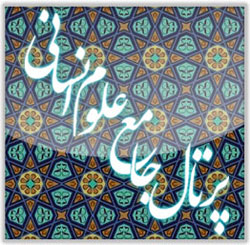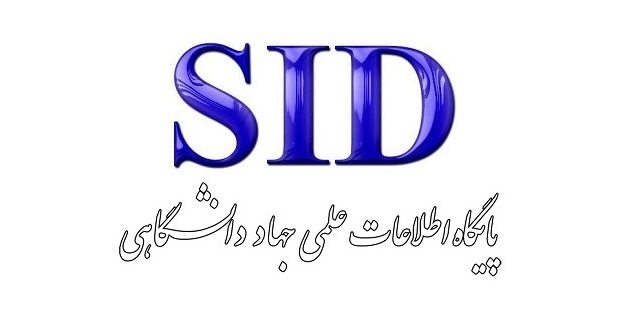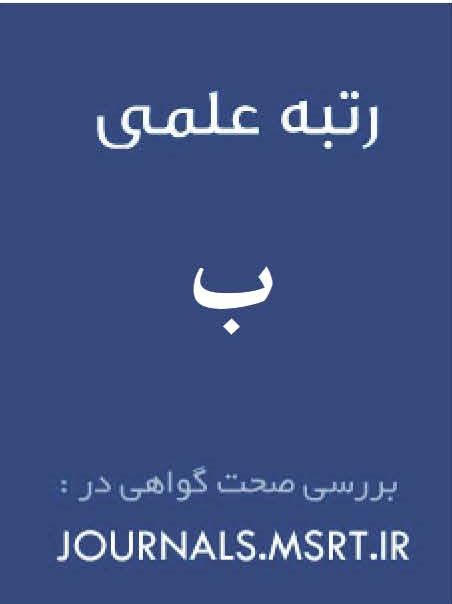Comparison and Analysis of the Poems of Nasir Khusraw Qubadiani and the Philosophical Ideas of Leibniz from the Perspective of Theological Methodology
Keywords:
Hakim Nasser Khosrow, Leibniz, comparative literature, theology, determinism and free willAbstract
In this study, the author seeks to examine and compare the issue of determinism and free will in the works of Nasir Khusraw Qubadiani and Gottfried Wilhelm Leibniz using a descriptive-analytical method. The problem of determinism and free will is among the oldest and most controversial theoretical topics in philosophy and theology, and poets and thinkers from both Iran and the Western world have held diverse views on this issue. Leibniz, the prominent seventeenth-century German philosopher, believed that the world is governed by divine laws and that every event has a specific cause and effect. He argued that God granted human beings free will so they could make decisions. This perspective reflects a synthesis of determinism and free will, indicating that the world operates with a divine order, while humans remain free in their choices. Similarly, Nasir Khusraw, the fifth-century AH Iranian philosopher and poet, addressed the concept of determinism and free will in his works. He held that the world operates under divine power and will, and all events occur in accordance with divine decree. However, he also referenced human free will, asserting that individuals possess agency and are responsible for their decisions in life. The findings of the research indicate that Nasir Khusraw embraced an integrated perspective on determinism and free will, emphasizing both divine predestination and human volition. In contrast, Leibniz distinguished between absolute necessity and conditional necessity and, through his theory of possible worlds, sought to preserve human free will alongside divine determination.
Downloads
References
1. Ebrahimi A. A Comparative Study of the Concepts of Predestination and Free Will in Rumi's Masnavi and Attar's Poetry. Comparative Literature Journal. 2023(25):239-71.
2. Abd al-Hakim K. Rumi's Mysticism. Tehran: Elmi Press; 2010.
3. Kheidaei L. A Comparative Study of Predestination and Free Will in the Views of Leibniz and Allameh Tabatabaei. Philosophy of Religion. 2019(2):317-42.
4. Kupa F. Theological Beliefs in the Works of Nasir Khusraw [M.A. Thesis]. Tehran: Tarbiat Modarres University; 1996.
5. Riahi AA. Judging Philosophical Views of Leibniz and Clarke Based on Sadr al-Muta'allihin's Views [M.A. Thesis]. Tehran: Tarbiat Modarres University; 1997.
6. Clarke S. The Leibniz–Clarke Correspondence. Tehran: Boostan-e Ketab Institute; 2002.
7. Rezaei M. Theodicy and Divine Justice. Tehran: Sohrevardi; 2004.
8. Ibn Faris Aa-HA. Muʿjam Maqayis al-Lughah. Cairo: Mustafa al-Babi al-Halabi; 2010.
9. Raghib Isfahani HiM. Alfāz al-Qurʾān. Tehran: Al-Maktaba al-Murtazawiyya; 2013.
10. Tusi KNa-D. Treatise on Predestination and Free Will. Qom: Qom Press.
11. Aristotle. Nicomachean Ethics. Tehran: University of Tehran Press; 1989.
12. Avicenna HiA. Al-Shifa (Theology). Qom: Maktabat Ayatollah al-Marashi; 2025.
13. Tahanawi MiAiA. Kashshaf Istilahat al-Funun. Beirut: Dar al-Kutub al-Ilmiyyah; 2006.
14. Tabatabaei MH. Tafsir al-Mizan. Tehran: Dar al-Kutub al-Islamiyyah; 2013.
15. Subhani J. Encyclopedia of Islamic Doctrines and Sects. Qom: Imam Sadiq Research Institute; 2004.
16. Nasr Tork M. Indicators of the Influence of Ashʿari and Muʿtazili Theology in Sanaei's Hadiqah. Comparative Literature Journal. 2021(17):118-35.
17. Sharif MM. History of Philosophy in Islam. Tehran: Center for University Publications; 1983.
18. Leibniz GW. Philosophical Papers and Letters. London: Routledge; 1956.
19. Leibniz GW. Monadology and Other Philosophical Essays. Tehran: Islamic Revolution Publications; 1993.
20. Latta W. Leibniz's Philosophy. Tehran: Hermes; 2005.
21. Bréhier É. History of Philosophy. Tehran: Hermes; 2006.
22. Copleston F. History of Philosophy, Vol. 4. Tehran: Elmi va Farhangi; 2001.
23. Nasir Khusraw Q. Divan of Poetry. Tehran: McGill Institute of Islamic Studies; 1978.
24. Fathi Dorjoon B. Intertextual Relations in the Poetry of Nasir Khusraw and Sanaei [M.A. Thesis]. Ardabil: Mohaghegh Ardabili University; 2019.
Downloads
Published
Submitted
Revised
Accepted
Issue
Section
License
Copyright (c) 2024 عظیمه صباغ نیا (نویسنده); حمیدرضا اردستانی رستمی; فرزانه یوسف قنبری, مسعود خردمند پور (نویسنده)

This work is licensed under a Creative Commons Attribution-NonCommercial 4.0 International License.








